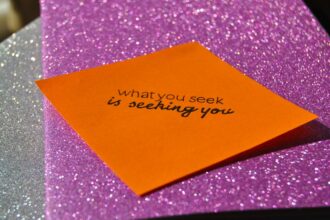Cognitive biases are systematic patterns of deviation from norm or rationality in judgment. They are the mental shortcuts that your brain takes, often leading you to make decisions that are not based on objective reality. These biases can affect how you perceive information, interpret experiences, and ultimately make choices.
Understanding cognitive biases is crucial because they can significantly influence your behavior and decision-making processes, often without you even realizing it. By recognizing these biases, you can begin to navigate your thoughts and actions more effectively. As you delve deeper into the realm of cognitive biases, you may find that they are not merely quirks of human thought but rather integral components of how you process information.
They arise from the brain’s attempt to simplify complex information and make quick judgments. While these shortcuts can be beneficial in some situations, they can also lead to errors in thinking and judgment. By becoming aware of these biases, you can take steps to mitigate their effects and improve your decision-making skills.
Key Takeaways
- Cognitive biases are systematic patterns of deviation from rationality in judgment, and they often occur as a result of mental shortcuts and limitations in information processing.
- Evolution has played a significant role in the development of cognitive biases, as they have helped humans make quick decisions in order to survive in their environment.
- Common types of cognitive biases include confirmation bias, availability heuristic, anchoring bias, and overconfidence bias, among others.
- Cognitive biases can have a significant impact on decision making, leading to errors in judgment and potentially negative outcomes.
- Emotions can heavily influence cognitive biases, as they can lead to irrational thinking and decision making.
The Role of Evolution in Cognitive Biases
The roots of cognitive biases can often be traced back to evolutionary psychology. Your ancestors faced a myriad of challenges in their environments, and the ability to make quick decisions was essential for survival. In many cases, these rapid judgments were based on limited information, which led to the development of cognitive shortcuts or heuristics.
These heuristics allowed early humans to respond swiftly to threats, find food, and navigate social interactions, all of which were critical for survival.
For instance, the tendency to favor information that confirms your existing beliefs—known as confirmation bias—may have helped early humans maintain social cohesion within groups.
By aligning with others who shared similar views, they could foster stronger alliances and enhance their chances of survival. However, in today’s complex world, these same biases can lead to flawed reasoning and poor decision-making.
Common Types of Cognitive Biases

There are numerous cognitive biases that you may encounter in your daily life, each affecting your thought processes in unique ways. One common bias is the anchoring effect, where you rely too heavily on the first piece of information you receive when making decisions. For example, if you hear that a car costs $30,000, that figure may anchor your perception of what a reasonable price is, even if subsequent information suggests that the car is worth much less.
This bias can skew your judgment and lead to suboptimal choices. Another prevalent bias is the availability heuristic, which causes you to overestimate the importance of information that is readily available or recent in your memory. If you frequently hear about airplane accidents in the news, you might develop an exaggerated fear of flying, despite statistics showing that air travel is one of the safest modes of transportation.
By understanding these common biases, you can begin to recognize when they might be influencing your thoughts and decisions.
The Impact of Cognitive Biases on Decision Making
| Cognitive Bias | Impact on Decision Making |
|---|---|
| Confirmation Bias | Leads to seeking out information that confirms pre-existing beliefs and ignoring contradictory evidence. |
| Anchoring Bias | Causes individuals to rely too heavily on the first piece of information encountered when making decisions. |
| Availability Heuristic | Leads to overestimating the likelihood of events based on their availability in memory. |
| Overconfidence Bias | Results in individuals overestimating their own abilities and knowledge, leading to risky decision making. |
| Sunk Cost Fallacy | Leads individuals to continue investing in a losing proposition because of the resources already invested. |
Cognitive biases can have profound effects on your decision-making processes, often leading you to make choices that are not in your best interest. When you allow biases to dictate your judgments, you may overlook critical information or fail to consider alternative perspectives. This can result in poor decisions in various aspects of life, from personal relationships to financial investments.
For instance, if you fall prey to the sunk cost fallacy—where you continue investing in a failing project because of the resources already committed—you may end up wasting even more time and money. Moreover, cognitive biases can create a feedback loop that reinforces poor decision-making. When you make a choice based on biased reasoning and it leads to negative outcomes, you may rationalize your decision instead of reevaluating your thought process.
This tendency can perpetuate a cycle of flawed reasoning and hinder your ability to learn from past mistakes. By recognizing the impact of cognitive biases on your decision-making, you can take proactive steps to counteract their influence.
The Influence of Emotions on Cognitive Biases
Emotions play a significant role in shaping cognitive biases and can further complicate your decision-making processes. When you experience strong emotions—such as fear, anger, or joy—your ability to think rationally may become compromised. For example, if you’re feeling anxious about an upcoming presentation, you might overemphasize potential negative outcomes and underestimate your capabilities.
This emotional bias can lead to self-doubt and hinder your performance. Additionally, emotions can amplify existing cognitive biases. If you’re already predisposed to confirmation bias, for instance, strong emotional reactions may cause you to cling even more tightly to your beliefs while dismissing contradictory evidence.
This interplay between emotions and cognitive biases highlights the importance of emotional awareness in decision-making. By recognizing how your feelings influence your thoughts, you can strive for a more balanced perspective.
How Cognitive Biases Affect Problem Solving

Cognitive biases can significantly hinder your problem-solving abilities by distorting your perception of the situation at hand. When faced with a challenge, biases such as functional fixedness—the inability to see alternative uses for an object—can limit your creativity and prevent you from finding effective solutions. For instance, if you’re trying to fix a leaky faucet but only think of using traditional tools like wrenches or pliers, you might overlook innovative solutions that could save time and effort.
Moreover, cognitive biases can lead to premature conclusions or hasty decisions when solving problems. The confirmation bias may cause you to seek out information that supports your initial hypothesis while ignoring evidence that contradicts it. This selective attention can result in incomplete analyses and ultimately lead to ineffective solutions.
By being aware of these biases and actively challenging your thought processes, you can enhance your problem-solving skills and arrive at more effective outcomes.
The Connection Between Cognitive Biases and Heuristics
Cognitive biases are closely linked to heuristics—mental shortcuts that simplify decision-making processes. While heuristics can be beneficial by allowing you to make quick judgments with limited information, they also pave the way for cognitive biases to emerge. For example, when using the representativeness heuristic, you might judge the likelihood of an event based on how closely it resembles a typical case.
Understanding this connection between heuristics and cognitive biases is essential for improving your decision-making skills. By recognizing when you’re relying on heuristics, you can take a step back and evaluate whether those shortcuts are leading you astray.
This awareness allows you to engage in more deliberate thinking and consider alternative perspectives before arriving at conclusions.
Overcoming Cognitive Biases
Overcoming cognitive biases requires conscious effort and self-awareness. One effective strategy is to actively seek out diverse perspectives when making decisions. By engaging with individuals who hold different viewpoints or backgrounds, you can challenge your assumptions and broaden your understanding of a situation.
This practice not only helps mitigate biases but also fosters critical thinking skills. Another approach is to implement structured decision-making processes that encourage thorough analysis before arriving at conclusions. Techniques such as pros-and-cons lists or decision matrices can help you evaluate options more objectively and reduce the influence of cognitive biases on your choices.
Additionally, taking time for reflection after making decisions allows you to assess whether biases played a role in your reasoning and learn from any mistakes.
The Relationship Between Cognitive Biases and Stereotyping
Cognitive biases are intricately linked to stereotyping, as both involve oversimplified judgments about individuals or groups based on limited information. Stereotyping often arises from cognitive shortcuts that categorize people based on their appearance or background rather than considering their unique qualities or experiences. This tendency can lead to unfair treatment and reinforce societal prejudices.
By recognizing the role of cognitive biases in stereotyping, you can work towards fostering greater empathy and understanding in your interactions with others. Challenging stereotypes requires conscious effort to see individuals as complex beings rather than mere representatives of their groups. Engaging with diverse communities and educating yourself about different cultures can help dismantle stereotypes and promote inclusivity.
Cognitive Biases in the Workplace
In the workplace, cognitive biases can have significant implications for team dynamics, leadership effectiveness, and overall organizational success. For instance, confirmation bias may lead managers to favor employees who align with their views while overlooking talented individuals who bring diverse perspectives. This bias can stifle innovation and hinder collaboration within teams.
Moreover, cognitive biases can affect hiring practices and performance evaluations. The halo effect—where one positive trait influences overall judgment—can lead employers to overlook weaknesses in candidates or employees they favor. To combat these biases in the workplace, organizations should implement structured evaluation processes that prioritize objective criteria over subjective impressions.
The Future of Understanding Cognitive Biases
As research into cognitive biases continues to evolve, there is great potential for enhancing our understanding of human behavior and decision-making processes. Advances in neuroscience and psychology are shedding light on how biases manifest in the brain and how they can be mitigated through targeted interventions. This knowledge could lead to more effective training programs aimed at reducing bias in various settings.
Furthermore, as society becomes increasingly aware of the impact of cognitive biases on issues such as discrimination and inequality, there is an opportunity for collective action toward creating more equitable environments. By fostering awareness and promoting critical thinking skills across communities and organizations, we can work towards minimizing the negative effects of cognitive biases on our lives and society as a whole. In conclusion, understanding cognitive biases is essential for navigating the complexities of human thought and behavior.
By recognizing their origins in evolution, their impact on decision-making and problem-solving, and their connections to emotions and heuristics, you can take proactive steps toward overcoming these biases in your own life. As we continue to explore this fascinating field, there is hope for a future where awareness of cognitive biases leads to more informed choices and greater empathy in our interactions with others.
Cognitive biases are systematic patterns of deviation from norm or rationality in judgment, and understanding them is crucial for improving decision-making processes. A related article that delves into the intricacies of cognitive biases can be found on Unplugged Psych’s website. This article provides a comprehensive overview of various cognitive biases, their implications, and strategies to mitigate their effects. For more in-depth insights, you can explore the article by visiting this link. This resource is invaluable for anyone looking to enhance their understanding of how cognitive biases influence our thoughts and actions.
WATCH THIS! The Shocking Truth About Perception Loops
FAQs
What are cognitive biases?
Cognitive biases are systematic patterns of deviation from rationality in judgment. They occur when people make decisions based on their own subjective reality, rather than on objective evidence.
How do cognitive biases affect decision making?
Cognitive biases can lead to errors in judgment and decision making, as they cause individuals to deviate from rationality and make decisions based on subjective factors rather than objective evidence.
What are some common examples of cognitive biases?
Some common examples of cognitive biases include confirmation bias, where individuals seek out information that confirms their existing beliefs, and availability bias, where people overestimate the importance of information that is readily available to them.
How do cognitive biases impact everyday life?
Cognitive biases can impact everyday life by influencing how people perceive and interpret information, make decisions, and interact with others. They can lead to misunderstandings, conflicts, and poor decision making.
Can cognitive biases be overcome?
While cognitive biases are deeply ingrained in human psychology, awareness of them can help individuals recognize and mitigate their effects. Critical thinking, seeking diverse perspectives, and being open to new information can help mitigate the impact of cognitive biases.




